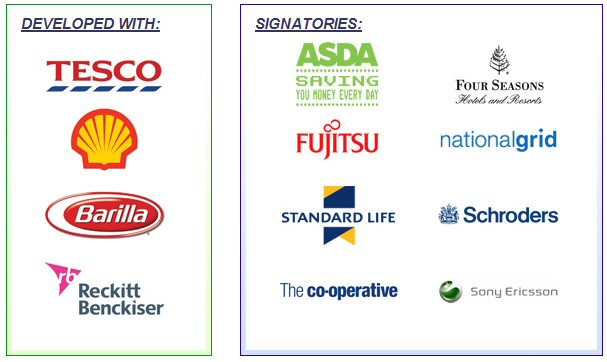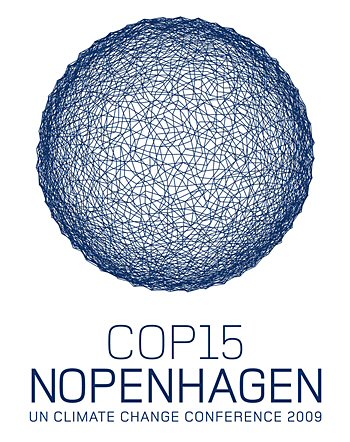
From COMMON DREAMS, January 4, 2010
There has never been a better moment for natural gas. It is the “other” fossil fuel, touted as a clean alternative to coal and oil. It may be non-renewable, proponents argue, but it is a bridge or transition fuel to a happier future. Not surprisingly, the industry has gone to great lengths to persuade local residents, members of congress, and the public at large that there’s nothing to worry about. Chesapeake Energy Corporation, one of the major players drilling for natural gas in the Marcellus Shale, which stretches from New York to Tennessee, has successfully billed itself as an environmentally friendly operation.
So when Cabot Oil and Gas, a Houston based energy company, was fined for several hydraulic fracturing fluid spills in northeastern Pennsylvania last year, Chesapeake took the opportunity to distance itself from what had become an embarrassing situation. In addition to the frack fluid spills, there were numerous reports of contaminated drinking water wells in Dimock, PA. On New Year’s Day 2009, a resident’s drinking water well exploded, ripping apart an eight by eight foot slab of concrete. The Dimock experience had the potential to become an industry nightmare, perhaps even derailing efforts to drill in New York State. “Certainly, when an operation isn’t meeting the regulations laid out by the state, it doesn’t reflect well on the industry,” Chesapeake’s director of corporate development for the company’s eastern division told a group of executives at an event in November.
The natural gas industry has had little trouble attracting powerful and influential boosters. It has been championed by oil and gas executive T. Boone Pickens, who happens to own Cabot and Warren Buffett, the oracle himself. At the inauguration of the Congressional Natural Gas Caucus in October, Pickens, the keynote speaker, declared, “We are swimming in natural gas.” Residents of Dimock, many of whom have sued Cabot for poisoning their water, may take a slightly different view of natural gas’s potential. In December, Pennsylvania’s Department of Environmental Protection issued a consent order requiring that the company provide clean water or filtration devices to 13 families within a nine-square -mile area. They also slapped them with a $120,000 fine.
More recently, according to the Wall Street Journal, Chesapeake’s chief executive, Aubrey McClendon, has been touring the country alongside the Sierra Club’s Carl Pope trumpeting the benefits of natural gas. Its biggest selling point is that it burns cleaner than coal and oil, though the impact of extracting it from deep shale formations is highly controversial. It also requires the use of large amounts of diesel fuel to keep compressors and other machinery operating 24/7. Responding to criticism from local affiliates, particularly in New York and Pennsylvania, Pope asked, “Will the 20% of the membership that happens to live in places where drilling is happening be unhappy? I’m sure that’s true.” So much for grassroots organizing.
In early December I drove through Bradford County, PA and stopped in Towanda, the county seat. The small town of about 3,000 people, located on the Susquehanna River, is humming with activity. The Towanda Motel, on the northern edge of town, has been entirely occupied by Chesapeake employees since April. No Vacancy signs hang from the office window and a security guard keeps watch over the premises. The company’s fleet of shiny white pick-ups and SUVs can be seen everywhere, harbingers of what seems to be a very important mission. Nearly everyone I met had leased their land, from the young man who owned the Victorian Charm Inn where I stayed to the woman who worked in the county clerk’s office (open late now on Tuesdays and Thursdays to accommodate “abstracters,” company reps who comb through deeds going back to the early 19th century to find out if there might be any obstacles to acquiring mineral rights from local landowners). When I asked the owner of a local diner if things had improved in Towanda since Chesapeake came to town she replied curtly, “Sometimes.” Meanwhile, Chesapeake has opened a regional office in what was once an Ames Department Store on the south side of town.
On my way through I picked up a copy of the local paper, The Daily Review. Chesapeake had taken out a full page ad on the subject of hydraulic fracturing, describing the process as one that “pumps a pressurized mixture of 99.5% sand and water with a small amount of special purpose additives,” into a well bore to shatter the rock and release the gas. The ad goes on to note that, “The additives…include compounds found in common household products.” They fail to acknowledge, however, that the fracking formula, which varies from well to well depending on the geology of the region, is considered proprietary and we still do not fully know what is being pumped underground. The industry, which has been exempt from the Safe Drinking Water Act, the Clean Water Act, Clean Air Act, and CERCLA since 2005, has never been forced to publicly disclose the contents of the fluids it uses to fracture wells. The so-called Halliburton Loophole, inserted into the 2005 energy bill, was a gift of the Bush-Cheney administration (Halliburton invented the process of hydraulic fracturing), and essentially said that the EPA no longer had the authority to regulate hydraulic fracturing.
Dr. Theo Coburn of the Endocrine Disruption Exchange (TEDX) has compiled what is probably the most comprehensive list of both drilling and fracturing chemicals based in part on samples from a well in Park County, Wyoming where a breach in surface casing released drilling fluids in 2006. They have uncovered 435 fracturing products that contain 344 chemicals including ammonium nitrate, ethanol, methane, and diesel. According to the TEDX Web site, “As natural gas production rapidly increases across the U.S., its associated pollution has reached the stage where it is contaminating essential life support systems – water, air, and soil – and causing harm to the health of humans, wildlife, domestic animals, and vegetation.”
Chesapeake has done a pretty good job of maintaining its environmentally friendly image, though two recent infractions reveal that accidents are perhaps inevitable and that Cabot Oil and Gas is not necessarily the exception.
On New Year’s Eve, evidence of a spill or contaminate release at a drilling site in Wayne County, PA was reported after aerial photos taken by an environmental watchdog group, Damascus Citizens for Sustainability, uncovered damage to trees near a well pad. The photos show a row of dead, leafless trees extending from the drill pad. Chesapeake had not reported the spill, which would be a violation of state law if indeed they were aware that it happened. According to the Times Tribune, a “weathered petroleum product” was discharged into a forested area and soil samples show that it contained elevated concentrations of barium and chloride.
Perhaps more damaging were reports in early December of a large hydrochloric acid spill in Asylum Township not far from Towanda. The spill was said to have released 295 gallons of acid into the surrounding soil. According to the DEP’s consent assessment the acid contaminated soil was neutralized with soda ash and hydrated lime, 126 tons of impacted soil was excavated, and approximately 13,817 gallons of hydrochloric acid/water mixture were removed from the well site. According to a DEP spokesman, the contaminated soil was taken to a landfill in New Springfield, Ohio. Although Chesapeake reported the spill to the DEP in February when it occurred the clean up and investigation was only publicized in December after the company was fined a civil penalty of just over $15,500.
When I reached Asylum Township supervisor Kevin Barrett, who happens to grow corn just below the drill site, he said the company dealt with the spill responsibly. It was in a remote area of the township about a half-mile from a major water source or residence on land owned by a family that does not live there. Asked if he was worried that his corn might be contaminated with hydrochloric acid, he said the spill was small and posed no threat to humans, wetlands, or wildlife.
However, according to the DEP report, the estimated leakage rate was 7.5 gallons per hour, though “Chesapeake personnel did not know how long the tank had been leaking.” Chesapeake notified the DEP on February 9, 2009 that a leak had been discovered at around 9 a.m. A DEP representative arrived at 1 p.m. and Chesapeake’s emergency contractor six hours later. If we take the company’s figure of 295 gallons of spilled acid that means the tank was leaking for close to 42 hours. Presumably the tank was leaking hydrochloric acid for nearly 30 hours before anyone knew anything about it or bothered to report it to the DEP. So was all of the contaminated soil contained and removed?
Accidents do happen, Barrett told me. It’s part of the price of doing business. Something McClendon and the Sierra Club’s Pope might like to acknowledge as they make the case for an industry whose green credentials are far from certain.
“But we have to find a cheap alternative to coal!” Scream the denizens of Industrial Civilization, scared that perhaps the foundations of their beloved, energy-hungry world are starting to crumble. Keep screaming, one way on another it’s going to end in tears.













